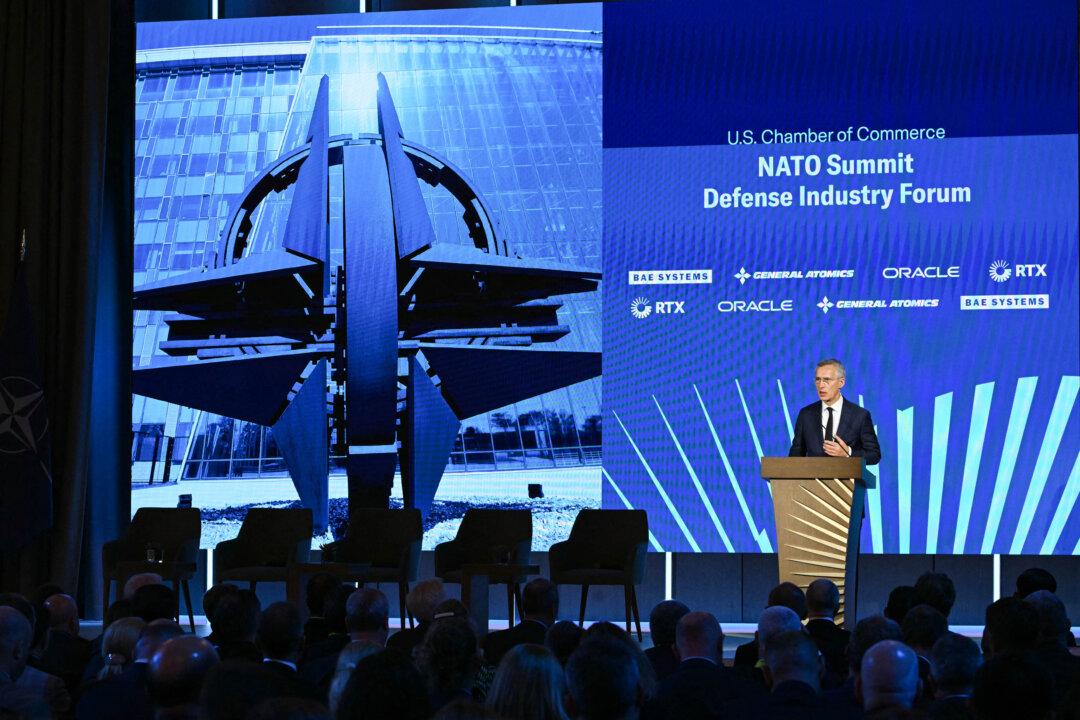WASHINGTON–NATO leadership is working to ensure that all 32 of its member states meet a minimum defense expenditure annually.
Speaking to a forum of international defense industry leaders on July 9, NATO Secretary General Jens Stoltenberg said that the alliance’s ambition to spend 2 percent of GDP on defense will be considered a requirement rather than an aspiration.




